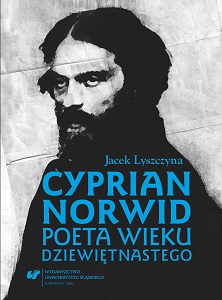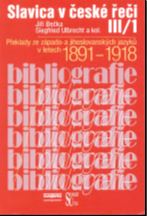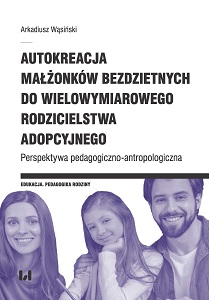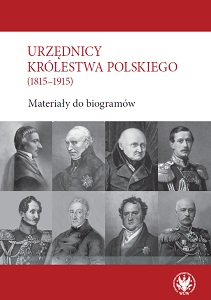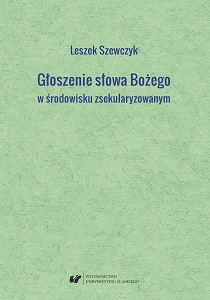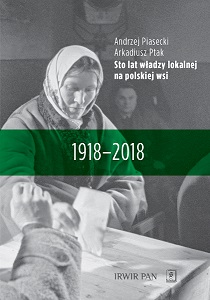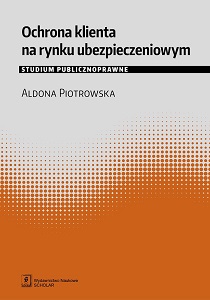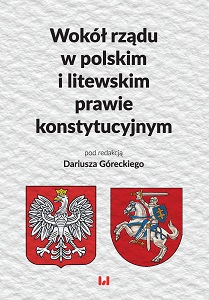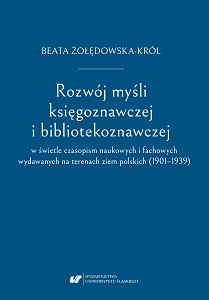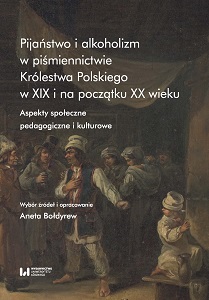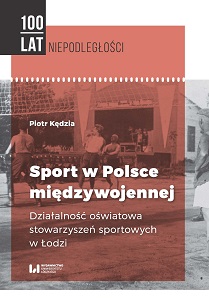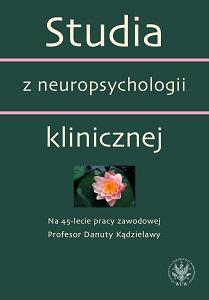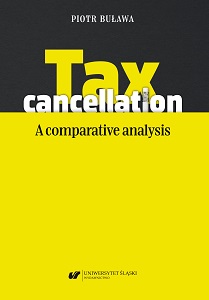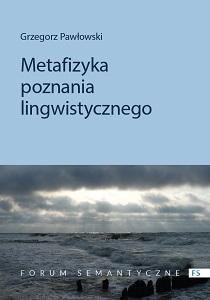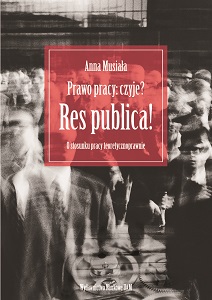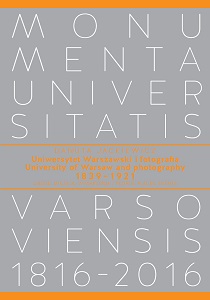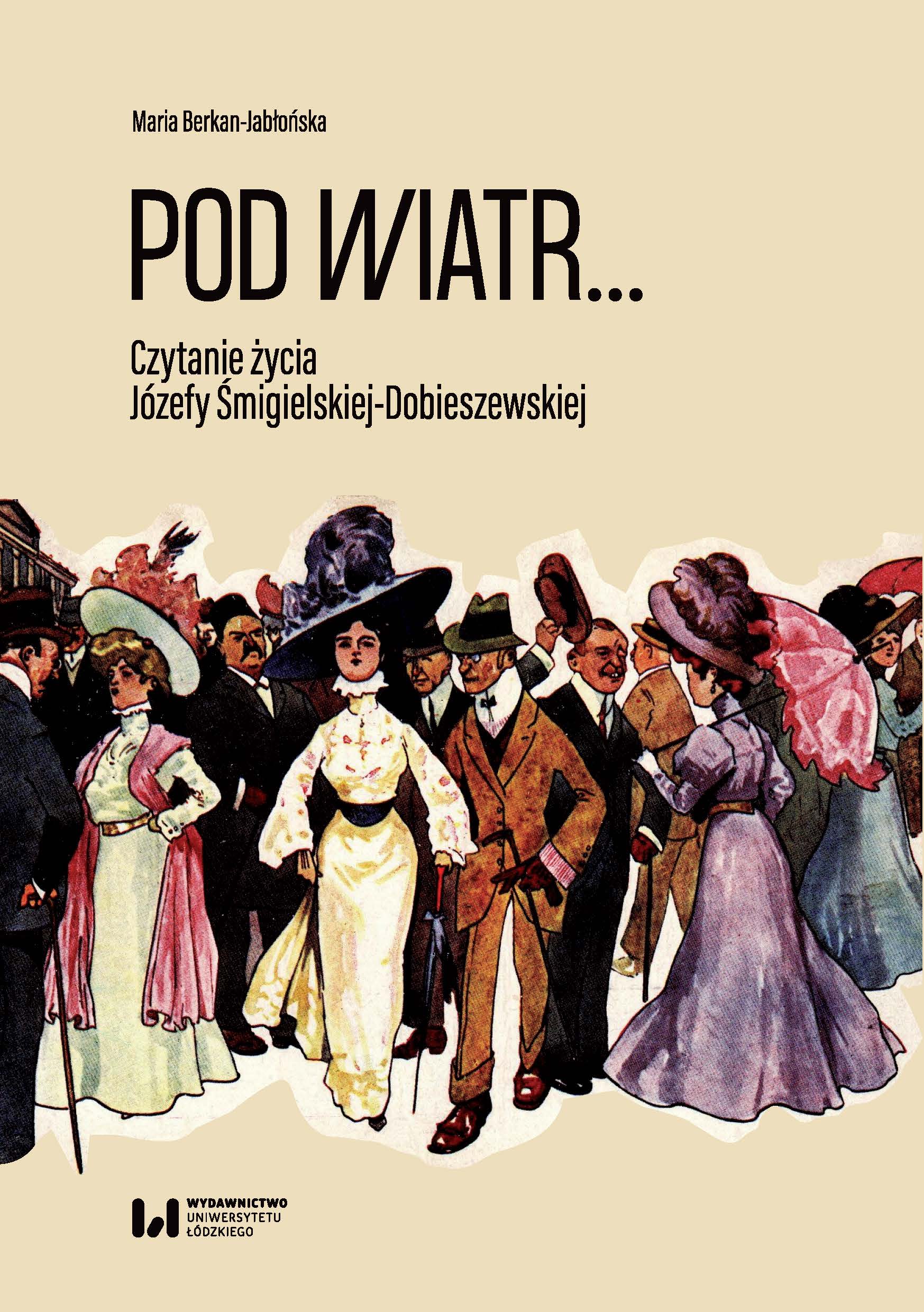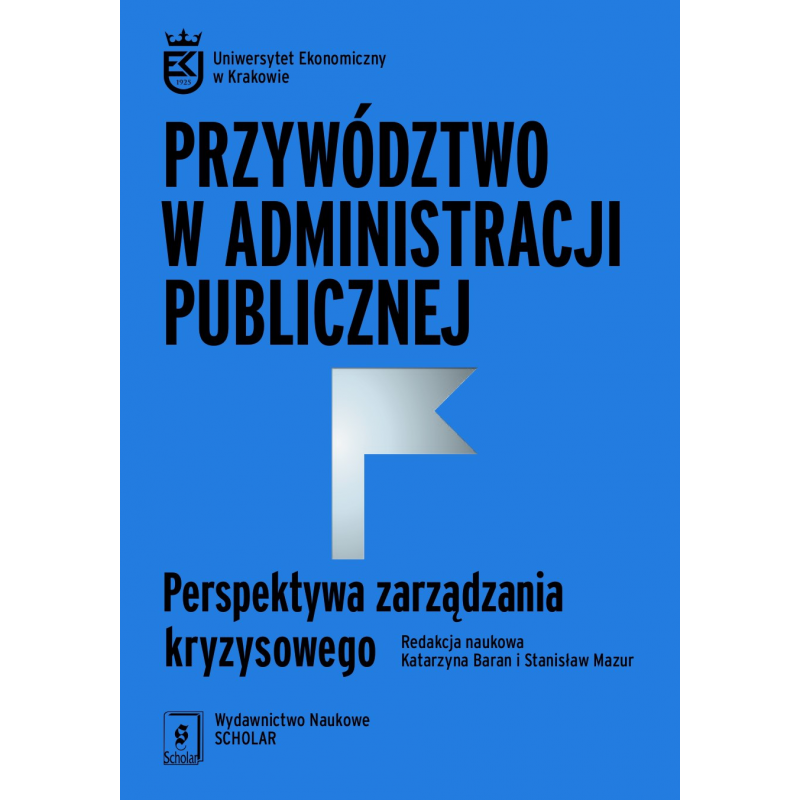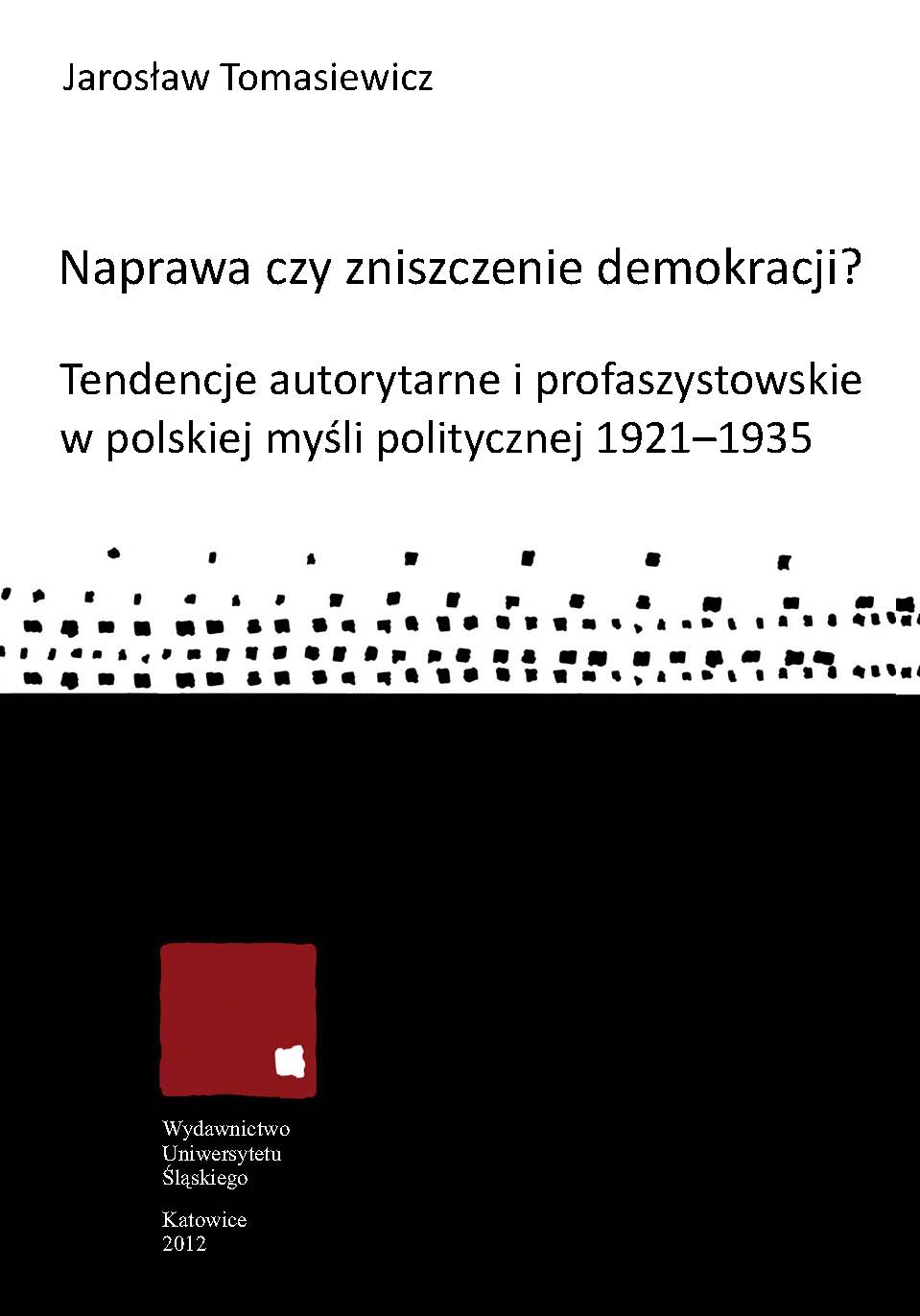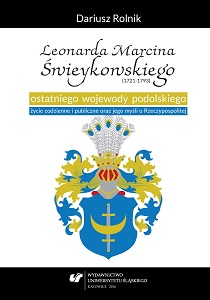
The Last Voivode of Podolia Leonard Marcin Świeykowski (1721–1793): His Everyday Life, Public Career and His Thoughts About the Commonwealth
Leonarda Marcina Świeykowskiego (1721—1793) ostatniego wojewody podolskiego życie codzienne i publiczne oraz jego myśli o Rzeczypospolitej
Keywords: political letters; Leonard Marcin Świeykowski; Stanisław Szczęsny Potocki; Targowica Confederation; Great Sejm
Leonard Martin Świeykowski was not one of the outstanding figures of the Stanislaus period, although he most certainly constituted an extraordinary and remarkable personality. In some circles, however, he was known as a very influential and opinion-forming person. Politically, he was connected with Stanislaus Augustus – he became one of the king’s closest associates in the second half of the 1780s in the Podolia and – to the greatest extent – Braclav voivodeships. It was the very monarch who appointed him to run the Crown Tribunal in the years 1782–1783, and this mission of his was largely appreciated by the general public. As a reward for performing the Marshal’s role, Stanislaus Augustus gave him a senatorial chair, later also the office of Castellan of Kamieniec, and then, in 1790, the Podolia Voivodeship. Moreover, L.M. Świeykowski enjoyed respect in his “Ruthenian”province, which was a reflection of – one might assume – becoming close to the house of Stanisław Szczęsny Potocki. His position was largely affected by his attitude in the courts and tribunals – he was considered one of the best law practitioners of the Stanislaus period, which was later quite mistakenly interpreted and assessed by some researchers. In the mid-nineteenth century, Konstanty Podwysocki wrote: “as we were dying, such high seats in the Senate, which had hitherto been given to Chomętowski or even Czarniecki in recognition of their bloody merits to the state, now were offered to some podstarosta grodzki (a borough substarost) [...], trained in jurist battles, a royal plenipotentiary and schemer [...], precisely like one of those attorneys whom Orzechowski compared to a prostitute saying that the former deals in shame whereas the latter – in his mouth, such a one now sat in the Senate, and it was ostensibly him who was expected to save the sinking ship of the state.” Historians rather did not judge L.M. Świeykowski’s actions; he did not actively participate in the political life of the state, only his Targowica period was mentioned and even that was done through the prism of his already very active sons, Michał and Jan Nepomucen, somehowalways executors of their father’s will. In the eyes of their contemporaries, Jan Nepomucen and Michał Świeykowski were considered traitors, and in October 1794, L.M. Świeykowski’s sons were mentioned among the first Targowica confederates, and their portraits were hung along with the portraits of S. Sz. Potocki, K. Branicki and Seweryn Rzewuski. It can be presumed that such a negative assessment of wojewodzice (the Voivode’s s ons) was influenced by their relationship with the Marshal of Targowica Confederation, S.Sz. Potocki, as well as the attitude of some of the other members of their family, and above all Józef Świeykowski’s, Voivode’s brother, “pit of iniquity,” though it is a big exaggeration, if not altogether a mistake. An analysis of L.M. Świeykowski’s biography and his relationship withStanislaus Augustus shows how important the political program was becoming in the construction of the royalist party – which nobody has hitherto paid any closer attention to, and which seems to attest much better to the nobility of political elites of the last decades of the Polish–Lithuanian Commonwealth. All of the above clearly shows the process of L.M. Świeykowski’s departure from his earlier support for royalists after 1791. The basis for thelast Voivode’s decision to leave the royalist party was not a lack of specific profit, but –evidently – his ideological and political considerations. The Voivode L.M. Świeykowski himself, apart from indeed few moments of his political activity, did not expose himself to the ridicule of public opinion. He was a man certainly well acquainted with the intricacies of political meanders, and at the same time he realized, despite numerous honours he was granted, where his place in line was. In his public life he always behaved properly and did not rail justice; he adhered to similar principles in private life, though here sometimes the issues connected with trials obscured those principles to him. At every turn of his life we know, he was always accompanied by the ancient Polish Commonwealth principles. The last voivode of Podolia always tried to combine these ancient principles with the service to the Commonwealth and the king.Although since the Stanislaus period the Świeykowski family had belonged to minor nobility, their political and economic position was weaker than the Borderland families’, such as: the Potockis, the Lubomirskis or the Sanguszkos; additionally, in this region, the family could be qualified as nouveau riches. Moreover, significantly, L.M. Świeykowski had to himself seekdocuments from his ancestors’ past, which he did with great commitment; he even lacked knowledge where his father was born, which in itself positioned him in the same, relatively low local Borderland hierarchy; his family name was unfamiliar to such an extent that most people mispronounced and misspelt it. He owed his social advancement as well as political and economic strengthening to the Lubomirskis, and then to Stanislaus Augustus. In vainone may search for the Świeykowski representatives on the lists of main officials of the Crown of the Kingdom of Poland and the Grand Duchy of Lithuania; they are also missing among castellans and voivodes of the Commonwealth until the Stanislaus period. He began his public career as podsędek (a deputy judge) of Bratslav and finished it as the Voivode of Podolia, which was a huge advancement since he was the 14th in the hierarchy of voivodesof the Commonwealth, which gave him a place in the forefront of Secular Senators. An even greater advancement was recorded in the sphere of his property, as he started from the proverbial scratch, and in 1793 the value of his estates amounted to 5 million zlotys, which gave him the seventh position among the richest men in the Borderlands. He came to it himself, thanks to his own work and thanks to a very good sense of economics as well as theaforesaid engagement in court cases, in which he truly always did his best to be honest and fair. L.M. Świeykowski was also the author of interesting political ideas relating to the Commonwealth, which were recorded in his political writings and letters to his sons. These – among others, Opuscula L.M. Świeykowskiego (L.M. Świeykowski’s Opuscula) – are comprised in the second part of the work titled Pisma i listy „polityczne” L.M. Świeykowskiego (“Political” Writings and Letters by L.M. Świeykowski). In turn, the first part of the work, titled: L.M. Świeykowski, jego życie, gospodarstwo, działalność publiczna i poglądy (L.M. Świeykowski, His Life, Estates, Public Activity and Opinions), consistsof nine chapters, was written based on the extensive Świeykowski’s Archive, whose largest part is stored in the Library of Kórnik – a few dozen volumes. The rest of this archive can be found in the Jagiellonian Library in Kraków, in the Ossolineum in Wrocław, and in Stefanyk National Science Library in Lviv. Volumes from the Świeykowski’s Archive are also stored by the National Library in Warsaw; moreover, and two collections of court extracts kept in the Academic Library of the PAU and PAN in Kraków as well as the collections of letters in the Raczynski Library in Poznań are presumably of the same provenance.The biography begins with Chapter One titled Family and Connections – from “Świeykowo” under the “Tulczyn Roof” of Szczęsny Potocki, which depicts the youth of the last Voivode of Podolia and L.M. Świeykowski’s progress from central Poland, i.e. from the titular Świejki in the Sieradz Voivodeship, through the Rawa Land to the south-eastern frontier of the Commonwealth, where he gradually becomes one of the most influential citizens. Here onecan also find information about the history of L.M. Świeykowski’s ancestors. Chapter Two, Estates and Economic Position – from the Tenant of Novosyelitsa to the Owner of Bratslav Land, complements the first chapter and shows the growth of L.M. Świeykowski’s importance in the south-east Borderlands of the Commonwealth. It also illustrates the development of an extraordinary career of building up an estate by a man who was, after all, a nouveau riche in these lands, and partly shows the mechanism that allowed him to create this economic power. Chapter Three, Lawsuits – Between Politics and Household Interests, presents one of the most important elements affecting the functioning of L.M. Świeykowski’s entire grand estate. It points to the ways of accumulating wealth, but not only as it also shows the owner’s attentiveness as the manager of his land. This is a very important facet of his portrait, which on the one hand explains his behaviour in many cases on the political scene, his restraint in making sometimes risky political decisions, and on the other testifies to his unquestionable political power, which can be observed in the lawsuits against the Czetwertyńskis or the Tyszkiewiczes. The next Chapter: Land Owner and Supervisor of His Peasants – Economics on the Periphery of Grand Political Affairs shows the usual daily functioning of a large estate in the south-east Borderlands of the Commonwealth with its internal problems, which the owner had to face on daily basis: from escapes of peasants,through dishonesty of various types of administrators, and human flaws, to the fundamental issue, namely the sale of manufactured goods, in which respect the close proximity of Russia was sometimes helpful, and so was Świeykowski’s acquaintance with Gregorij Potemkin. Chapter Five, Public Career – On the Way to Honours, shows the beginnings of L.M. Świeykowski’s public career. This chapter describes the mechanisms that allowed him tobecome known on the political scene in the Borderlands of the Commonwealth, i.e. the support he received from Stanisław and Józef Lubomirski and later from Stanislaus Augustus himself, but also L.M. Świeykowski’s diligence, energy and good political intuition. Chapter Six, Senator of the Commonwealth – between Stanislaus Augustus and Borderland Magnates covers the years 1783–1787 and points to the crux of political dilemmas, which undoubtedlyL.M. Świeykowski must have had when considering whether to support the king or his opposition. Moreover, he has been presented in this chapter as a good politician of the royalist party – in certain areas, an effective one and, at the same time, not devoid of cynicism. Questions connected with the political career of the last Voivode of Podolia show the progress of his advancement in the society, but not only as they also set it within the political realities of the Stanislaus period, between the royalist party of Stanislaus Augustus and the anti-royal opposition, in which the republican ideology played – at least verbally – a leading role. What is more, the whole situation coincided with the physical proximity of Russia, which further complicated the already difficult political choices. L.M. Świeykowski’s ambiguous attitudeand concerns are discussed in Chapter Seven, During the Great Sejm – Observer, Executor, and Critic of the Dictate of “Sejm Debaters”. The chapter presents the process of deepening L.M. Świeykowski’s dilemmas in his perception of the Commonwealth. Obviously, the quotation marks in “Sejm Debaters” suggest the usage of the phrase as a metaphor and so the term applied here should be treated more broadly, referring to the then entire political reality with its clashes between different currents and concepts for repairing the Commonwealth.L.M. Świeykowski was initially a supporter of reforms, advocated the aukcja wojska (i.e. the augmentation of the army) and the introduction of taxes; later, after the adoption of the Constitution of May 3, which he had not expected after all, he became a critic of everything that was happening in Warsaw, and he considered the parliamentary reforms to be an attack on the freedom of the Commonwealth. At this point, he became a declared en emy of Stanislaus Augustus. This chapter also shows the factors which contributed to his transition to a group of malcontents. Chapter Eight presents the last period of political activity of the last Voivode of Podolia, when he openly stands against Stanislaus Augustus and tries to justify his decision. It is a short period in his life, when – at least in theory – he gains so far the highest position in the Commonwealth, which does not need to be measured against his place in the Senate. This Chapter, titled The Targowica Confederation – Advisor to Marshal of Confederation?, shows his commitment to the works of the confederation, not so much directly, but rather in theoretical terms, which – in his opinion – would lead to the formation of the right image of the Commonwealth. The last chapter, Political Views – A Republican with the King or a Monarchist with Republicans?, refers to the L.M. Świeykowski’s politicalopinions and discusses them. The bases for the chapter’s development constitute the “expressions” and “deeds” of L.M. Świeykowski throughout his whole life as well as his “political” writings. The biography of L.M. Świeykowski, the last Voivode of Podolia, constitutes a vast study, which shows the complexities regarding not just one man, but also discusses the complicated and complex political and economic reality of the Stanislaus period. Thus, it portrays not only the Voivode of Podolia but also the whole circle of political elites in the south-eastern Borderlands of the Commonwealth.
More...
